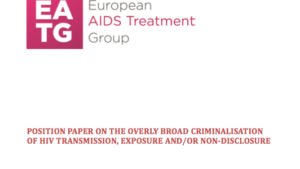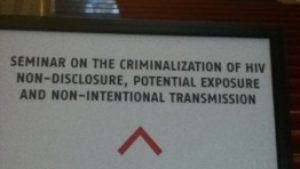Overview
Despite not having an HIV-specific criminal law, Norway has a long history of prosecutions for HIV non-disclosure, exposure or transmission, being one of the highest per-capita prosecuting jurisdictions in the world.
The first case was tried in 1992, using a communicable disease law in the Penal Code (section 155) that has now been repealed. At least 16 people are known to have been prosecuted between 1992 and 2017, including six cases where HIV was not transmitted. All prosecutions resulted in conviction, although one case was overturned on appeal and sent for retrial. Sentences have been for up to five years imprisonment. People have also been prosecuted for HIV-related offences in combination with other charges relating to rape and sex with minors. Notably, in Norway cases of hepatitis C exposure and transmission have also been prosecuted.
The 2017 changes to the Penal Code have now greatly limited circumstances in which people can be prosecuted. Although not explicitly stated, the law allows for prosecution for both HIV transmission or exposure but prosecution is no longer possible if people are on antiretroviral treatment (ART) or use a condom, as such acts are not considered to expose another person to risk of HIV transmission. Similarly, oral sex is no longer considered an act exposing another to risk of HIV. (In 2011, activist Louis Gay went public following his arrest for oral sex.)
Norwegian law does not require HIV disclosure prior to sex, but it is a defence if a person’s spouse or cohabiting partner knows their HIV-positive status and consents to the risk of transmission. The new law has also made it clear that transmissions occurring during sex work, injecting drug use, or mother-to-child cannot be prosecuted.
HIV Justice Network is not aware of any prosecutions since the new Penal Code came into force in July 2017.
Laws
Penal Code
Section 237. Transmission of a communicable disease
A penalty of a fine or imprisonment for a term not exceeding three years shall be applied to any person who infects or exposes another person to a risk of infection with a communicable disease hazardous to public health.
No penalty applies when a person who has been infected with a sexually transmitted disease or been exposed to a risk of such infection is the spouse or cohabitant of the person who has transmitted the infection or exposed the person in question to the risk of infection and the spouse or cohabitant has consented in advance to being exposed to such risk.
The penalty for negligent transmission of a communicable disease is a fine or imprisonment for a term not exceeding one year.
Section 238. Aggravated transmission of a communicable disease
The penalty for aggravated transmission of a communicable disease is imprisonment for a term not exceeding six years. In determining whether the transmission of a communicable disease is aggravated, particular weight shall be given to whether it has resulted in:
a) the general spread of the disease or a risk of such spreading, or
b) loss of life or considerable harm to body or health.
The penalty for negligent aggravated infection is imprisonment for a term not exceeding three years.
Present Penal Code of 1902 section 155:
Section 155.
Any person who, having sufficient cause to believe that he is a bearer of a generally contagious disease, wilfully or negligently infects or exposes another person to the risk of infection shall be liable to imprisonment for a term not exceeding six years if the offence is committed wilfully and to imprisonment for a term not exceeding three years if the offence is committed negligently. Any person who aids and abets such an offence shall be liable to the same penalty. If the aggrieved person is one of the offender’s next-of-kin, a public prosecution shall be instituted only at the request of the aggrieved person unless it is required in the public interest.
Further resources
HIV Norge summary of the amendment to Section 237 of the Norwegian Penal Code.
Brochure, published by HIV Nordic, highlighting key questions on HIV transmission and exposure criminalization for people living with HIV in Denmark, Sweden, Finland, Norway and Iceland.
Acknowledgements
Our thanks to Australian law firm Hall & Wilcox for their research assistance to confirm current relevant legislation.
HIV Justice Network's Positive Destinations
Visit the Norway page on Positive Destinations for information on regulations that restrict entry, stay, and residency based on HIV-positive status, as well as access to HIV treatment for non-nationals.







